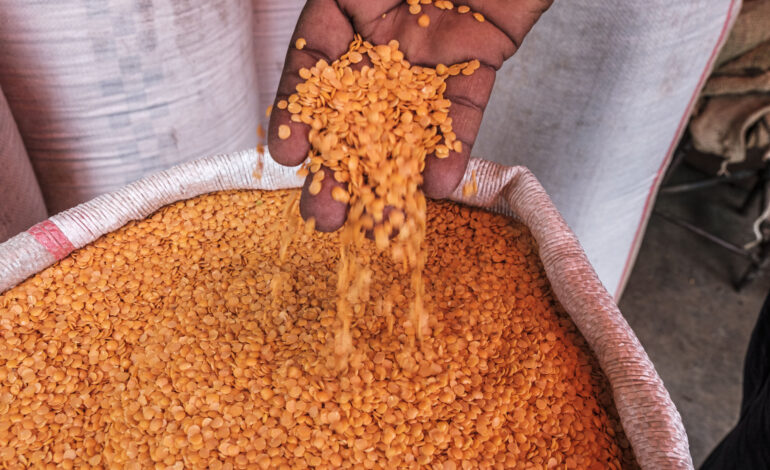
(FAO) – World Pulses Day will be celebrated around the globe on Thursday, February 10 with the COVID-19 pandemic still looming over our heads and impacting affecting food security and supply chains.
Pulses also known as beans or peas are staples, which are cooked or prepared in traditional dishes in many kitchens across the Caribbean and are a rich source of protein. They are low in fat and contain no cholesterol, which can contribute to reducing the risk of cardiovascular diseases. Pulses are an excellent source of plant-based protein, iron, folate or B-vitamin and are high in potassium.
The Food and Agriculture Organization of the United Nation (FAO) recognizes 11 types of pulses including dry beans, dry broad beans, dry peas, chickpeas, cow peas, pigeon peas and lentils, many of which are stewed or curried in a variety of Caribbean dishes.
According to The Regional Overview of Food Security and Nutrition 2021, a joint publication of FAO, the International Fund for Agricultural Development, the Pan American Health Organization/World Health Organization, the World Food Programme and the United Nations Children’s Fund (UNICEF), world hunger increased in 2020 under the shadow of the COVID-19 pandemic. It is projected that between 720 and 811 million people in the world faced hunger in 2020. Considering the middle of the projected range around 118 million more people were facing hunger in 2020 than in 2019. Due to limited or no income, many of these families are unable to afford dairy, meat, fish and poultry. This makes a good case for pulses to be used as an alternative source of protein as they are generally inexpensive and when paired with rice, potatoes, or even pasta they can adequately provide the nutrients and proteins our bodies require to function optimally.
Apart from its affordability, pulses also enrich the soil fertility with nitrogen and require minimum fertilizers and water to grow making them the perfect choice for drought or water scarce environments. From an economic perspective, pulses can also enhance the livelihood of farmers given the low investment required to grow them and the market demand for the product.
Renata Clarke, Subregional Coordinator of FAO stated that, “We are at a precarious stage in the world where we must accelerate our efforts to reduce food insecurity, malnutrition and hunger if we are not only to save lives, but to ensure a healthy and productive society. We must not only find creative and innovative solutions to grow more food, but to offer diversification and variety in food options. Given its diversity, affordability and nutritional content, it seems most fitting to celebrate pulses”.
Meanwhile, the Minister of Agriculture and Food and Nutritional Security in Barbados, The Honorable Indar Weir stated that, “The consumption of pulses, in particular pigeon peas, continues to be a popular tradition in Barbados, especially peas and rice on Sundays and “jug-jug” at Christmas. The Ministry has recognized that several plantations have been increasing their acreage of pigeon peas and it is pleasing to see large number of Barbadians flocking to farms to harvest the peas, either for their domestic use or for resale. The Ministry encourages increased local production of pulses, including rouncifers and bonavist, to reduce the level of imported peas, which stood at 663,182 kilos in 2021, to the value of Bds$1.7 million.”






